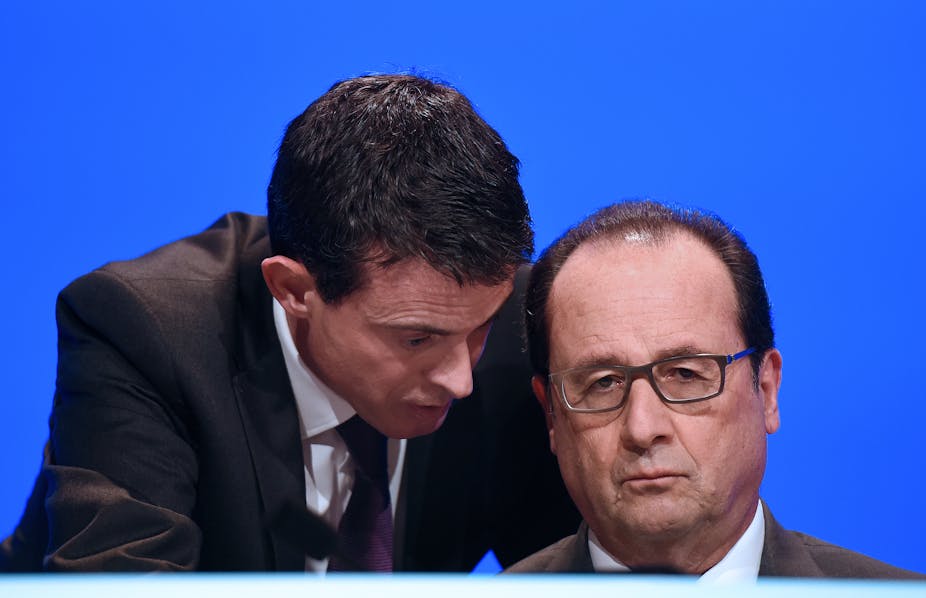In his declaration that “France is at war”, the French president, François Hollande, noted that this could not be a war between civilisations because the Islamic State (IS) movement does not represent a civilisation.
In essence, IS is barbarism. It subverts the Western laws of armed conflict, the ethics of war and international humanitarian law. It attacks while concealed by the population, does not adhere to the truth in its information operations and has declared that it will mount mass casualty attacks on those who do not conform to its ideas. Its treatment of prisoners is on a par with the worst atrocities of Nazism and it has no interest in the Western priority of protecting civilians.
The group’s recent attacks in Paris show that the character of war has changed and that, therefore, so must our response – as unpalatable as that may be. Beyond the initial sadness and anger, a longer-term strategic approach is needed.
Hollande made it very clear that he believes France, and by extension the rest of the world, is “at war” with terrorists. There were plenty of critics who argued after 9/11 that the idea of “War on Terror” was a misnomer, as it’s not possible for a state to wage war on a tactic – and the Bush administration indeed struggled to apply the label of war to the processes of guarding against, deterring, detecting and pursuing terrorists.
But the situation now is different. The scale of the attack in Paris and the prospect of repeated attacks on France and French interests fulfils the criteria of an act of war – and similarly, the passionate indignation of the French people and the desire to respond with some gesture or counterstroke has the hallmarks of war.
In the 20th century, Europeans started on a path to try to prevent war by the use of conventions, principles and legal instruments. After the breakdown of diplomacy between the major powers led to a catastrophic global war in 1914-18, there were efforts to secure global diplomacy by enshrining it in an institution – first the League of Nations and then, after World War II, the United Nations.
The UN is starting to address the actions of terrorists through its Counter-Terrorism Implementation Task Force (CTITF), but it is revealing that this massive global instrument for dealing with wars between states is foundering when its members are violently confronted by smaller, non-state entities.
Describing IS as a “state” is just as erroneous as misjudging a state’s response to a terrorist organisation. What is required is a careful calibration of policy based on a clear understanding of the character of the war one is confronted with, and the nature of the adversary.
What’s the plan?
The US president, Barack Obama, admitted in the summer of 2015 that his government had “no complete strategy” for defeating IS, in part because it was keen not to be dragged into another Middle Eastern conflict where American interests were not threatened directly. There was talk of “containment” and airstrikes by manned and unmanned aircraft. Critics pointed out that the goal was unclear.
Hollande has been more specific. His aim is to destroy IS forces so they cannot attack again. The US has reiterated that its ambition is the annihilation of IS as well.

Diplomats have been willing to point out that the military instrument should be used in conjunction with other tools, but they also emphasise again the need for a set of defined ends. If IS was to be crushed in Syria, what, in fact, would replace it? Whose government and troops would control the space IS occupied? And who would pay for it all?
Sun Tzu advised in the Art of War that one must defeat the enemy’s strategy, rather than his military forces. The trouble with IS is that its strategy is dichotomous. It wants to establish a caliphate, but it also wants to wage war for the sake of it.
What is not yet clear is whether IS has opened a new front in Europe because it is under intense pressure in Syria and Iraq, or whether it is expanding its strategy because of its successes.
A silver lining
A belligerent state’s interests can be identified, and states tend to be constrained by the rules of statehood, such as economic exchange and diplomatic relations. IS, like al-Qaeda, is not governed by such constraints – and there are few corresponding shared interests. To defeat the group’s strategy therefore means denying IS is a state. But the more complex goal – preventing IS from waging an indefinite war for the sake of it – is more long-term. That demands a calibrated military effort.
France and its Western allies are labouring under various constraints. They cannot appeal to decency, restraint or rules, as IS is already waging war in contravention of established norms. They cannot deter, since deterrence only works if an enemy is willing to be deterred through weakness or concern for losses. There are, however, strategic opportunities.
There is plenty of evidence to show that the group lacks popular support across the Muslim world. There needs to be a concerted campaign to cut off what international support it does have through a diplomatic offensive.
Historically there are precedents, such as the demise of the communist campaign against Oman in the 1970s which, when terrorist financing was suddenly severed and the movement’s leaders discredited, led to its collapse.
More important still, the attacks on France have given major states a common cause – and that is the greatest opportunity of all.

